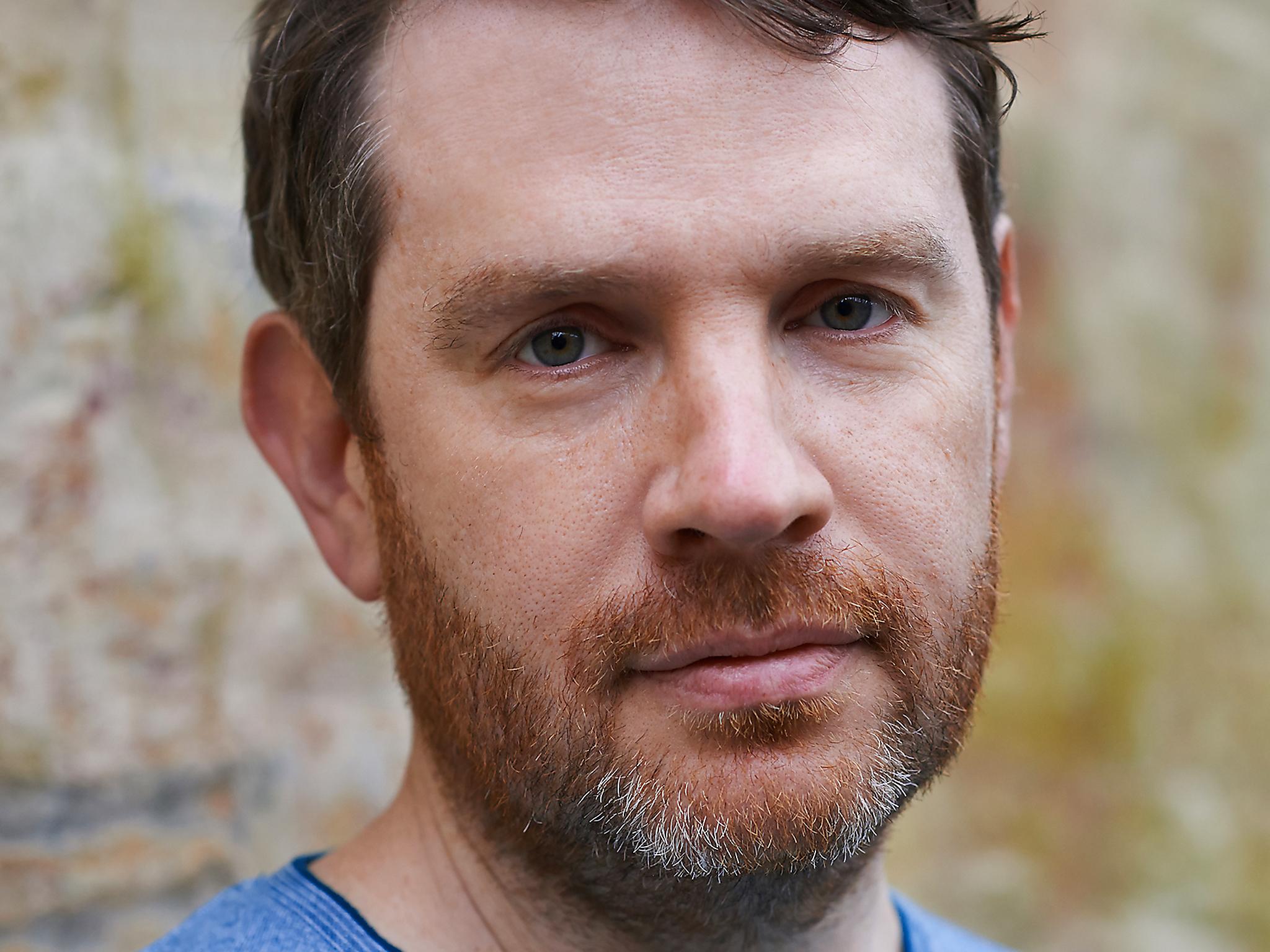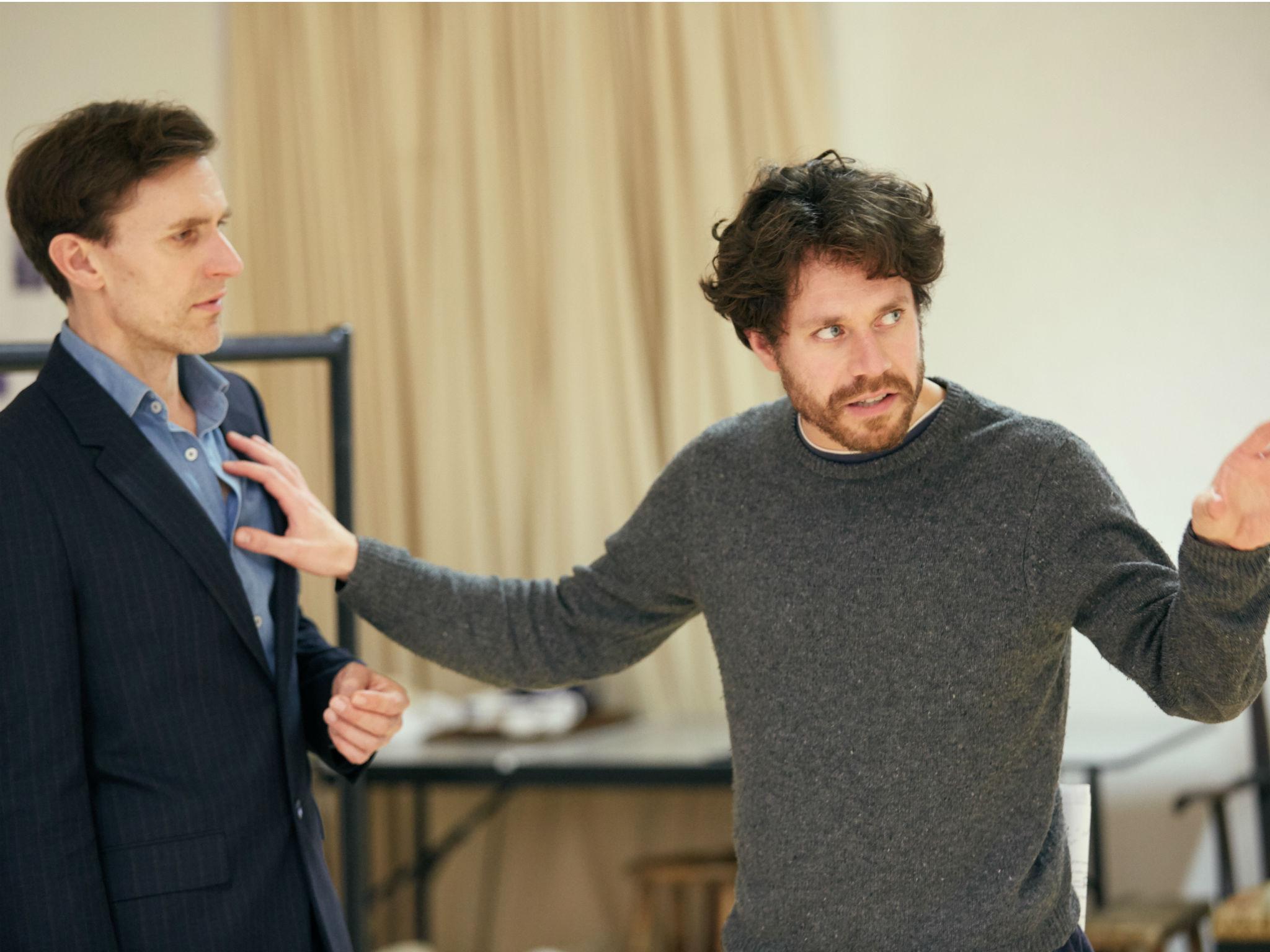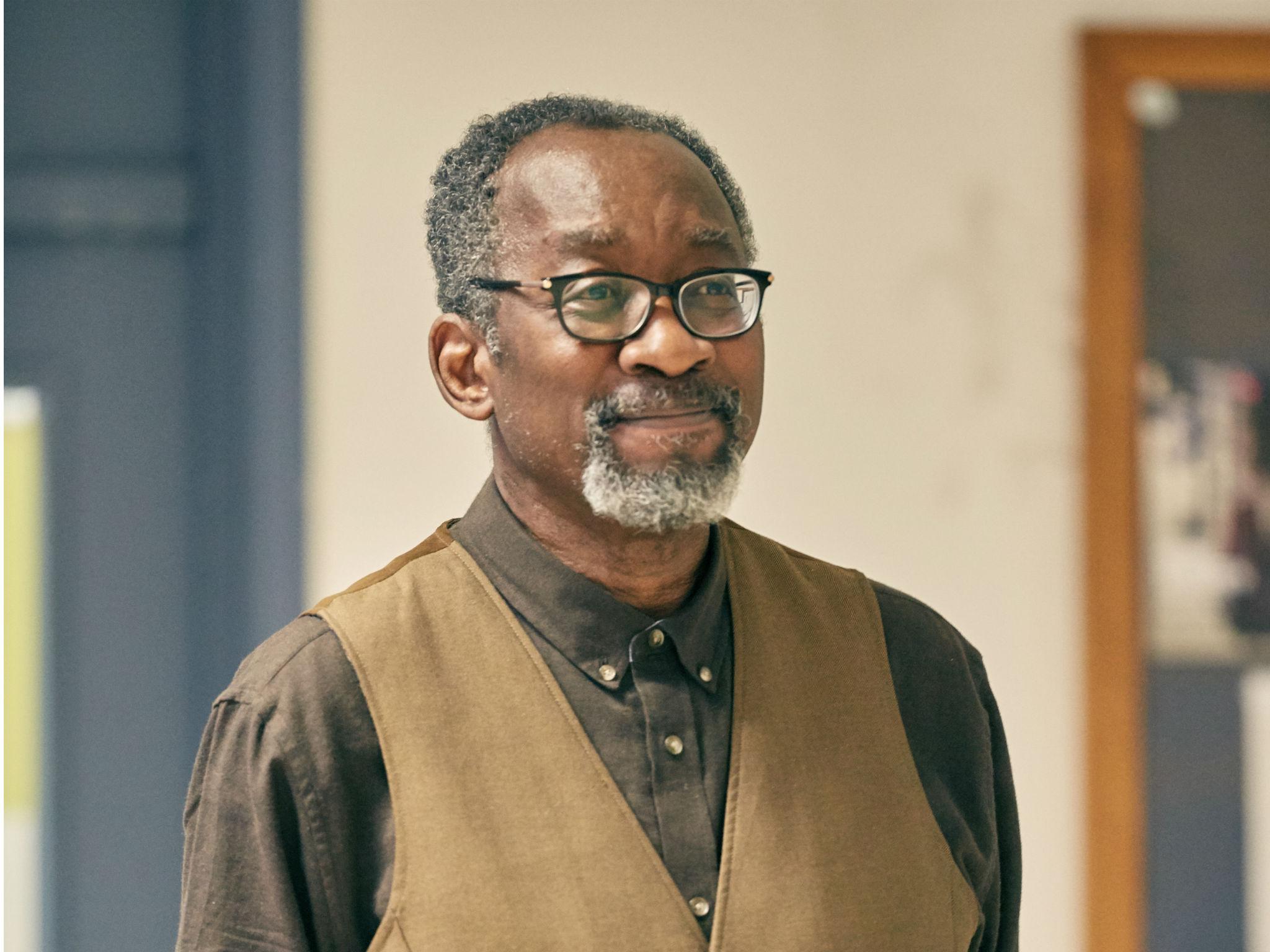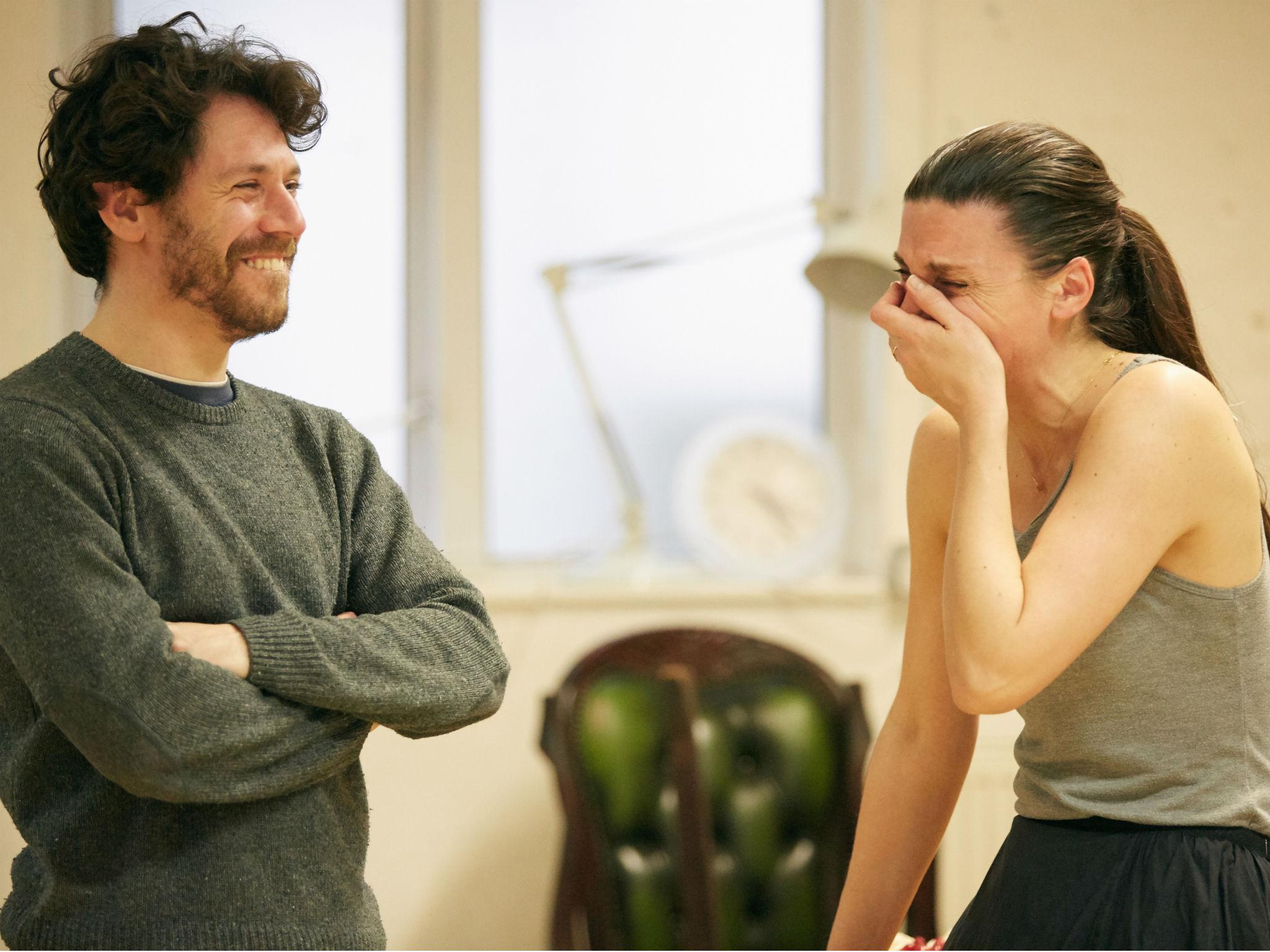Why I wrote a play about William Wordsworth: 'Coming to theatre so late, and then trying to write for it, is a fairly mad idea'
Nicholas Pierpan's play, which stars John Sackville and Joseph Mydell, questions whether William Wordsworth was a poetic genius or a reckless egotist

Your support helps us to tell the story
From reproductive rights to climate change to Big Tech, The Independent is on the ground when the story is developing. Whether it's investigating the financials of Elon Musk's pro-Trump PAC or producing our latest documentary, 'The A Word', which shines a light on the American women fighting for reproductive rights, we know how important it is to parse out the facts from the messaging.
At such a critical moment in US history, we need reporters on the ground. Your donation allows us to keep sending journalists to speak to both sides of the story.
The Independent is trusted by Americans across the entire political spectrum. And unlike many other quality news outlets, we choose not to lock Americans out of our reporting and analysis with paywalls. We believe quality journalism should be available to everyone, paid for by those who can afford it.
Your support makes all the difference.I wrote a PhD on the poet William Wordsworth many years ago. More recently I returned to the subject to write a play about him. It opens at The Theatre by the Lake, in Keswick and stars John Sackville as Wordsworth, Emma Pallant as his sister Dorothy and Olivier-award winning actor Joseph Mydell as George Beaumont. My play explores the man behind the myth who is torn between his poetic ambitions and family duties.
Starting this play was a refreshing process. It was like visiting a half-remembered neighbourhood from your past: everything still seems familiar, but you can no longer really tell where you are or you keep getting lost. Street after street surprises you with things you’ve forgotten.
I first read Wordsworth’s poetry as a student in rural Maine. This part of America is best-known, in literature, as the place where Stephen King sets his novels. His stories make visitors reluctant to enter the Maine woods without a shotgun and holy water, but I think bringing a copy of Wordsworth’s poems might be the better choice. Maine's wilderness is a great place to discover the poet.

I was an undergraduate at the time, majoring in Economics. One of my classmates wore a tie to class. When I asked him why he said, matter-of-factly, “because it motivates me”. I never wore a tie but enjoyed the subject; its world of maths and models seemed elegant, and made concrete sense. I didn’t know anything about business but figured I would before too long.
I took an English course as well, almost by accident. I think it was required. We read Nietzsche's Thus Spake Zarathustra, Kundera's The Unbearable Lightness of Being, and other such books that were way over my head. I liked it but also vowed not to take any more such classes. I might get distracted and miss a hard-earned chance at yuppiedom.
That English course stayed in my head, as a powerful book can even if you don’t quite understand it. A year later curiosity got the better of me and I signed up for another class with the professor. The topic of the course was almost incidental to me when I registered. But it was on the English Romantic poets, and immediately I knew I was on to something, with Wordsworth most of all.

Wordsworth’s poems have a unique way of pulling the reader in. They suggest, far more than they explain, and so one’s imagination becomes quite active in the reading process. For example, this autobiographical passage recalls Wordsworth in childhood, playing with his mates on Windermere lake:
The shouts we sent
Made all the mountains ring. But ere the fall
Of night, when in our pinnace we returned
Over the dusky lake, and to the beach
Of some small island steered our course, with one,
The minstrel of our troop, and left him there,
And rowed off gently while he blew his flute
Alone upon the rock, oh then the calm
And dead still water lay upon my mind
Even with a weight of pleasure, and the sky,
Never before so beautiful, sank down
Into my heart and held me like a dream.
Wordsworth captures moments like this without cataloguing them to death. What gets left out is as important as what is included, and shows real trust in the reader’s own imagination. Describing how this scene affects him is no egotistical aside, but a careful dramatic technique: we are drawn into the movement of his own mind, its transition from one state to another (as in drama). If the moment and its effect on Wordsworth gain equal importance, the relationship between them remains largely unstated. We fill in the blanks ourselves, an action that somehow makes the poem’s content much more vivid. Cuts in film work along similar principles.

Wordsworth maintained staunch faith in his style, despite some withering critical abuse. He claimed his poetry was “endued with the Imagination of human minds on whom they operated” – a big assertion to make about the relationship between his poems and readers, and a fairly bizarre one to make in 1808. I’m not sure his friend Sir Walter Scott – having won wealth and fame through his sensational, action-packed tales – would have known what Wordsworth was going on about.
A chance for graduate work on the Romantic poets brought me to the UK. It was during this time I became interested in theatre. My previous image of “theatre” was all show tunes and jazz hands, because I basically knew nothing about it. I could count the number of plays I’d seen on one hand.
Wandering into a British theatre one day, I was unexpectedly thrilled. The play was about a normal village where everyone is turning into a rhinoceros. As the epidemic slides the town towards savage chaos, people refuse to deviate from their idle concerns. One pseudo-philosopher proclaims syllogisms throughout, such as “All cats die. Socrates is dead. Therefore Socrates is a cat.” Everyone approves admiringly. I later learned that the play, Eugène Ionesco’s Rhinoceros, was an allegory about how ordinary Germans had turned into Nazis. But it could just have easily been about “fake news”, or herd investment behaviour that led to the 2008 financial crash. The play was completely immediate. It was also hilarious.
Coming to theatre so late, and then trying to write for it, is a fairly mad idea. There was a balancing act between studying Wordsworth’s poetry and learning about the theatre on my own. In playwriting there is a lot to figure out and no one really gets to the bottom of it, except for maybe Shakespeare and a couple others. Academic research is the same – there’s an ocean of stuff to read, so you go for a swim and maybe a very long one. The steady revelation of how much you don’t know is exciting, in its way.
I think that’s why I was drawn to theatre. The economic models I learned as an undergraduate were admirably designed and very clean, but also rested on some unrealistic premises (such as “rational” market participants). The subject’s overarching goal was clear, to perfect such models and so create a kind of omniscient theory, but the mystery and chaos of life – including those overpowering emotional forces still driving “rational” people – had been largely left out. I didn’t see how this could be corrected.
The dramatic form included such insane elements, was built on them. That said, the two worlds have some striking similarities: like an economic model, a play is a pretty tightly-structured form. It tends to have a clear beginning, middle, and end, for example. A narrative structure has certain beats that need to be hit. In one sense, a play can be seen as a delicate little machine.
But this form serves a very different god. Its coherent, decipherable structure does not offer the certainty (albeit, within a margin of error) of the mathematical model, but goes deep into the chaotic and inscrutable side of life: an irrevocable dilemma, the complexity of loving someone whose greatest strength is also their greatest (perhaps damning) weakness, feeling like you are the last person in the room to know what’s going on, or realising (despite any outward appearance) that we are not so far evolved from Neanderthals as we maybe think. If such dramatic material sounds depressing, it is also the arena for showing real courage, love, and change.
'William Wordsworth' at Theatre by the Lake from 1 – 22 April
Join our commenting forum
Join thought-provoking conversations, follow other Independent readers and see their replies
Comments